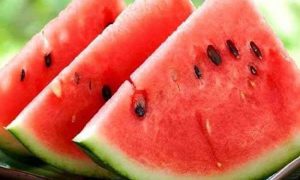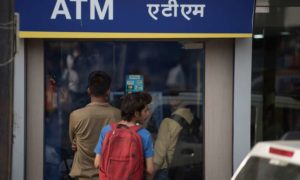In this article, we have focused on the increased risk of infections among diabetics during the monsoon season and also emphasies the role of adult vaccination in preventing these diseases.
The monsoon season brings relief from the heat with its cool rains, but for those living with diabetes, it also brings increased risks of infections. Combined with the ongoing threat of influenza, this season calls for greater awareness and proactive measures, including adult vaccination, to safeguard health.
Read More: Type 2 Diabetes Risk: Disturbed Sleep Can Impact Your Blood Sugar Levels – Expert Speaks
Managing Diabetes During Monsoon
Diabetes mellitus remains a pressing health concern in India, posing significant challenges with its increasing prevalence and substantial impact on healthcare resources. The high humidity and constant moisture during the monsoon create a breeding ground for bacteria and fungi. For diabetics, who already face higher risks of infections due to compromised immune systems and poor blood circulation, this is especially concerning.
Read More: Paracetamol most harmful for liver? Doctor explains how much is too much
Common Infections During Monsoon:
- Foot Infections: Diabetic neuropathy reduces sensation in the feet, so walking in wet conditions or wearing damp footwear can lead to unnoticed injuries that may become infected.
- Fungal Infections: The warm and moist environment can cause fungal infections, particularly in areas like the feet, groin, and armpits.
- Respiratory Infections: The humidity can worsen respiratory issues, leading to increased risks of bronchitis, pneumonia, and other respiratory infections.
- Influenza, or the flu, affects the respiratory system and can lead to severe complications, including pneumonia, bronchitis, and hospitalization, especially for diabetics. The flu can also cause blood sugar levels to fluctuate, complicating diabetes management.
Read More: Feeling Anxious? THIS Diet Can Help Lower Stress And Boost Mental Calm
Importance of Adult Vaccination
Vaccination is a crucial method to prevent infections and protect health, especially for adults with chronic conditions like diabetes. However, due to limited awareness about the need and availability of vaccinations, adoption remains low. This leads to severe complications from vaccine-preventable diseases, often resulting in hospitalization and increased mortality. Additionally, the urban-rural divide poses a significant challenge in providing healthcare access for all. Cultural beliefs, misinformation, and concerns over vaccine safety further contribute to vaccine hesitancy.Key vaccines recommended for diabetic adults include:
1. Influenza Vaccine: An annual flu shot is essential for people with diabetes to protect against the seasonal flu and its complications.
2. Pneumococcal Vaccine: This vaccine protects against pneumococcal diseases such as pneumonia, meningitis, and bloodstream infections.
3. Tetanus, Diphtheria, and Pertussis (Tdap) Vaccine: This combination vaccine protects against tetanus, diphtheria, and pertussis (whooping cough). A booster shot is recommended every 10 years.
4. Hepatitis B Vaccine: Given the higher risk of hepatitis B among people with diabetes, vaccination is recommended for those who haven’t been previously vaccinated.
Conclusion
According to Dr. Rajiv Kovil, Head of Diabetology, Zandra Healthcare and Co-founder of Rang De Neela initiative, “As the monsoon season brings its challenges, it’s crucial for individuals with diabetes to be proactive about their health. Understanding the risks of infections and the importance of vaccinations can make a significant difference in preventing complications. By taking preventive measures, staying up to date with vaccinations, and managing diabetes effectively, you can enjoy a healthier, more vibrant life despite the seasonal threats. Stay informed, stay protected, and take control of your health this monsoon season.”
This article aims to highlight the risks associated with infections in the diabetic population during the monsoon season and the importance of adult vaccination in preventing these infections. By spreading awareness and encouraging proactive health measures, we can collectively work towards a healthier community.





































